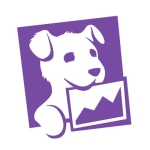What is our primary use case?
At a high level, its use cases are related to security monitoring, log aggregation, and a little bit of analysis related to incidents or fraud.
How has it helped my organization?
Splunk Enterprise Security has created better visibility for us on the cybersecurity type of events and issues. We are still maturing, but where we have seen some growth is getting better data, knowing what data to look at, and how to understand that data.
It has end-to-end visibility into our cloud-native environment. This is extremely important for us because of the type of business we do. We have a lot of PII data and a lot of compliance data on which we have to maintain very tight controls, so it is extremely important that we are able to put that in the cloud and monitor and watch our environment very closely.
It has reduced our mean time to resolve, but we are still maturing. We have got a lot of maturing to do. We have got a lot of growing to do. We have also been limited on the staff to be able to get the full realization of what we can get out of it yet, so that is a place where we are continuing to grow.
It has improved our business resilience. We have been able to identify things that could have presented a larger problem for us financially or legally through various events. We have been able to leverage the data there. We have been able to maintain that data and support that data. It does the job. It meets the needs.
Splunk has not helped to predict problems in real time because we have not yet matured to that place, but we need to. Generally, it has been helpful, but we know that we have got a lot of growing up there. We still have not got everything identified and captured in the space we want to be able to do better analysis.
Its ability to provide business resilience by empowering our staff is really high. Empowerment is great, but we have a resource problem, so we have not quite realized where we could be.
We monitor multi-cloud environments. We have three of them. It is difficult to monitor them currently with Splunk. We are living in a highly regulated stack and a very little regulated stack and the ability to get a single pane of glass for all of that is very difficult.
What is most valuable?
Integration with the cloud is pretty important and good for us. We found the integration with a lot of tools, not all tools yet, valuable. It does make the transfer of data, log files, and other things easier for us.
What needs improvement?
Its pricing is extremely high. There are other tools out in the market that are competitive. They do not necessarily have all the functionality, but they are competitive. The professional services we have used have been high as well in comparison to the market.
In terms of scalability, it is hard to forecast where you are going. There is room to improve there.
For how long have I used the solution?
I have been using this solution for about five or six years.
What do I think about the stability of the solution?
I would rate it eight out of ten in terms of stability. Where there has been ambiguity for me is that I recently had system stability issues that were beyond my control. They were part of my solution, and I was not aware that Splunk was accountable for it. It got quickly resolved, but there was a gap there that created pain for my business.
What do I think about the scalability of the solution?
We have not had any issues. We also have not had any detriment, but it is hard to forecast based on where you are going from a business perspective, at least with the models and the account teams that I have been working with. There is room to improve there.
How are customer service and support?
It has been a rocky road. I have been through a road where I have had limited to little engagement or support. I am on the cusp of a large turnaround, meeting with my client team and dialoguing through it. Based on the history, I would probably rate their sales support a four out of ten. Going forward, I would rate their sales support an eight out of ten. They are in the right direction. I would rate their technical support a nine out of ten.
How would you rate customer service and support?
Which solution did I use previously and why did I switch?
We have been using the same solution for five or six years. It was selected before I joined, so I do not know.
How was the initial setup?
I joined after it was implemented. What I am working on now is the technical depth. I am spending a lot of time with the teams there for direction strategy. Splunk has done a great job there, specifically in pulling the right resources to bear. I had executive briefings directly with executives today where we had an opportunity to talk about different components of our solutions and our stacks, and it has been very good.
What was our ROI?
We are in a growth state right now. We have seen an ROI, but anticipating any point in the future is a little difficult, so it is a mixed response. Our scale is not quite clearly defined to be able to put it to a metric or to tie it back to consumption use. There is a little bit of autonomy in there to over-adjust and still find that we can true-up in a better space. That has been good for us, but if you let that run away from you, then you start to get in trouble.
We have not seen any cost-efficiency. We have seen our usage and needs grow, so we have seen Splunk go up in cost for us. We have not quite realized any efficiencies yet. It is also indicative of our maturity model.
What's my experience with pricing, setup cost, and licensing?
The licensing is good, but the pricing absolutely needs some work. It is very high. One thing that they put in a contract, but they do not emphasize it enough is true-ups on usage based on the quarterly consumption. They do not follow that methodology. They let a customer use, use, and use, and then at some point, a true-up occurs, and it is a large cost. There is an opportunity to do a quarterly track type of true-ups as per the agreements out there. That would put them in a position where customers are able to plan on, forecast around, and work through volume adjustments that may occur in their environment.
The other place where Splunk could spend time is the scale-up and scale-down model. Scale-up is easy where you get more business, and it is easy to add more capacity, whether it is storage or SVUs, but when you need to scale down because of a change in a business, it does put customers in a position where they are locked in, and there is no way to maneuver around that.
Which other solutions did I evaluate?
We do an evaluation annually. It is important for us to do a market comparison and make sure we are looking at options in our work. What makes Splunk Enterprise Security competitive is the variabilities that they bring to the table for the overall solution. It has things like APIs that you can tie into. There is also the bonus functionality of being able to do analytics there. User behavior analytics is important for us.
What other advice do I have?
I would rate Splunk Enterprise Security an eight out of ten.
Disclosure: My company does not have a business relationship with this vendor other than being a customer.



















